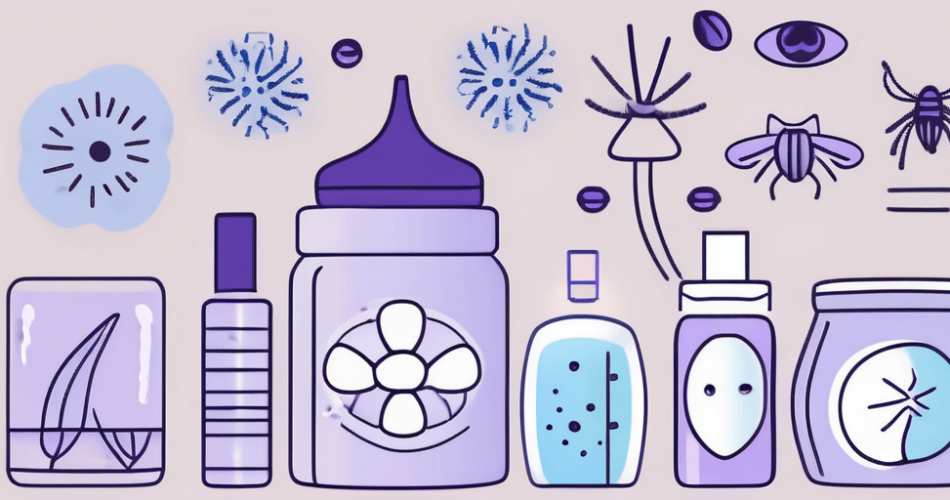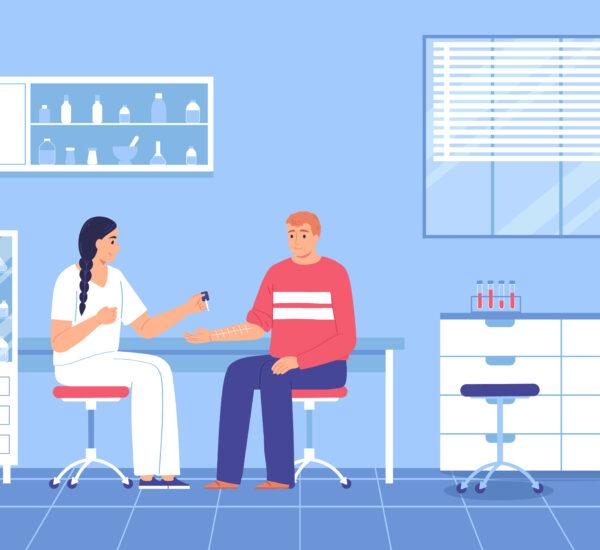There are several forms of allergies that people suffer from worldwide. Unfortunately, these allergies can become a nuisance as they can affect the skin, digestive system, and other body parts. In short, it can be a difficult setting for an individual with an allergy as that can hinder the person from enjoying their life.
So, if you think you have an allergy that needs to be addressed, this guide can help you. Find out what type of allergy you have and what commonly causes your allergy to flare up. Doing so will help you to adjust your lifestyle and work around the possible threats to your health. Let’s begin!
What is Allergy

Allergy, in simple terms, is an overreaction of the immune system to substances that are usually harmless. These substances, known as allergens, can trigger an allergic reaction when they come into contact with the body. While most people can tolerate these allergens without any adverse effects, individuals with allergies may experience a range of symptoms instead.
It is important to note that symptoms of an allergic reaction can manifest in various forms, such as shortness of breath, skin rashes, nasal congestion or stuffy nose, digestive issues, and even life-threatening anaphylaxis. Although, take note that severe allergic reactions can vary from person to person. Some people may experience mild symptoms while others face more severe consequences.
Furthermore, allergies can develop at any stage of life, not just in childhood as commonly believed. It is possible for adults to develop new allergies or for existing allergies to change over time. This highlights the dynamic nature of allergies and the importance of staying vigilant about potential allergens, even if no previous allergic reactions have occurred.
Role of Immune System in Allergy Occurrence
At the core of allergies is the body’s immune system. The immune system’s primary function is to protect the body from harmful substances, such as bacteria and viruses. However, in individuals with allergies, the immune system mistakenly identifies allergens as threats and launches an attack.
The immune system sets off antibodies that fight off allergens. These antibodies are known as Immunoglobulin E, which release certain chemicals that can result in an allergic reaction or allergy symptoms.
Different Types of Allergies

As mentioned, various kinds of allergies can manifest at any age or lifetime. Understanding the different types of allergies can help individuals identify their specific triggers and manage their symptoms more effectively.
Here are the common known types of allergy:
Food Allergy
Food allergy occurs when the immune system reacts to specific proteins found in certain foods. Common food allergens include peanuts, tree nuts, shellfish, eggs, and dairy products. Symptoms of food allergy can range from mild to severe and may include hives, itching, swelling, gastrointestinal distress, and even life-threatening anaphylaxis.
It is essential for individuals with food allergies to carefully read food labels and be cautious when dining out to avoid accidental exposure to their allergens. When accidentally ingested food items that can cause allergy, it’s best to use an epinephrine injection prescribed by your doctor. At the same time, consider visiting the emergency room to prevent the risk of anaphylaxis.
Skin Allergy
Meanwhile, skin allergy, also known as allergic dermatitis, occurs when the skin comes into direct contact with an allergen. Common risk factors for skin allergies include certain metals (such as nickel), latex, and certain chemicals found in skincare products. Symptoms may include redness, itching, rash, and blisters.
Take note that some patients may develop another skin condition due to an allergic reaction. The most common skin conditions are contact dermatitis and atopic dermatitis.
Patients with skin allergies should be mindful of the products they use on their skin, including soaps, lotions, and cosmetics. Opting for hypoallergenic and fragrance-free products can help reduce the risk of skin irritation and allergic reactions. Additionally, wearing protective clothing, such as gloves or long sleeves, when in contact with known allergens can provide an extra layer of defense for sensitive skin.
Respiratory Allergies
On the other hand, respiratory allergies can occur when allergens are inhaled, triggering an allergic reaction in the respiratory system. Common respiratory allergens include pollen, pet dander, dust mites, and mold spores. Symptoms may include sneezing, runny nose, itchy and watery eyes, congestion, and coughing.
Types of respiratory allergy conditions:
- allergic rhinitis or hay fever
- allergic asthma
Individuals with respiratory allergies may benefit from using air purifiers in their homes to reduce indoor allergens and improve air quality. Keeping windows closed during high pollen seasons and using allergen-proof bedding can also help minimize exposure to triggers. In severe cases, allergists may recommend allergy shots or immunotherapy to desensitize the immune system to specific allergens, providing long-term relief for chronic allergy sufferers.
Causes and Triggers of Allergies
While knowing the different types of allergies can help patients to be aware of the conditions they may have, knowing the constant triggers is still vital to avoid them from occurring. In short, it can help you reduce the frequency and severity of future allergic reactions.
Let’s identify the common factors that contribute to the development of allergies below!
Genetic Factors in Allergies
Research has shown that there is a genetic predisposition to allergies. If one or both parents have allergies, there is an increased likelihood that their children may develop allergies as well. However, it is essential to note that genetics alone do not determine the presence or absence of allergies. In short, it is only a contributing factor to you being susceptible to developing an allergy.
Environmental Triggers
Another factor is the environmental triggers. Several environmental triggers are mentioned earlier, which highly contribute to an allergic reaction. Common environmental triggers include pollen, dust mites, pet dander, mold spores, and certain pollutants in the air. Minimizing exposure to these allergens, such as through proper ventilation, regular cleaning, and air purifiers, can help reduce allergic reactions.
Moreover, environmental triggers can also include insect bites, which might be lethal to some individuals. For instance, bees, fire ants, etc are known for their painful bites that can escalate to an allergic reaction. It’s best to avoid them at all times to prevent harmful consequences.
Lastly, climate change can also lead to a possible allergic reaction. The constant shift in environmental conditions such as rising temperatures and altered pollen seasons, pose new challenges for allergy management. With the environmental conditions, some patients may develop seasonal allergies.
When to Visit a Doctor

Living with an allergy or a series of allergies is not easy for most patients. They may face some difficulties in avoiding certain triggers, which means there will always be limitations in their life. Unfortunately, these triggers are common allergens that people encounter daily. Thus, allergic reactions are possible to occur on several occasions.
In that case, it is best to seek guidance from a health expert to manage allergy problems. Seeking medical emergency is a must, especially with the threat of anaphylaxis. This scenario won’t always occur, still, it’s best to prepare for any lethal situations, especially if the allergic reaction leads to severe cases.
If you experience persistent or severe allergy symptoms doctors can help identify the specific allergens triggering your reactions through tests like skin prick tests or blood tests. They can also help manage your allergies effectively, including prescribing medications or recommending allergen immunotherapy. Don’t hesitate to consult a healthcare professional for proper diagnosis and treatment of your allergies.
Treatment and Management of Allergies

While there is no cure for allergies, various treatment options, and lifestyle changes can help individuals manage their symptoms and improve their overall quality of life.
Allergy Medications
Medications are often used to relieve allergy symptoms and prevent allergic reactions. Antihistamines, nasal sprays, eye drops, and corticosteroids are commonly prescribed to alleviate symptoms such as itching, congestion, and inflammation. It is important to consult with a healthcare professional before starting any medication.
Lifestyle Changes for Allergy Management
Making certain lifestyle changes can help individuals minimize their exposure to allergens and reduce the frequency and severity of allergic reactions. These changes may include avoiding known triggers, keeping indoor environments clean and free from allergens, using hypoallergenic products, and implementing dietary modifications for food allergies.
Allergy Shots and Immunotherapy
In some cases, healthcare professionals may recommend allergy shots or immunotherapy to help individuals build immunity to specific allergens. Allergy shots involve regular injections of small amounts of the allergen to desensitize the immune system over time. This treatment can reduce the severity of allergic reactions and may even provide long-term relief.
Conclusion
Having an allergic reaction is a common health problem that people suffer from worldwide. Its occurrence involves a complex participation of natural agents like antibodies and external allergens. While the process works universally on how people develop allergies, identifying the specific factors is still vital so patients can understand how they develop a specific allergy. Also, it will help you as a patient with allergies to specify the next best step to avoid possible triggers and enjoy life too.
If this blog is not enough to specifically identify your allergy type and triggers, don’t worry. We can help you better understand your current health condition and prevent future allergic reactions.
Book an online consultation with an allergist or immunologist today!



